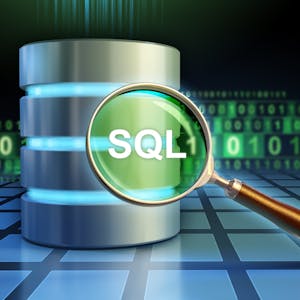Tools for Exploratory Data Analysis in Business
About this Course
This course introduces several tools for processing business data to obtain actionable insight. The most important tool is the mind of the data analyst. Accordingly, in this course, you will explore what it means to have an analytic mindset. You will also practice identifying business problems that can be answered using data analytics. You will then be introduced to various software platforms to extract, transform, and load (ETL) data into tools for conducting exploratory data analytics (EDA). Specifically, you will practice using PowerBI, Alteryx, and RStudio to conduct the ETL and EDA processes. The learning outcomes for this course include: 1. Development of an analytic mindset for approaching business problems. 2. The ability to appraise the value of datasets for addressing business problems using summary statistics and data visualizations. 3. The ability to competently operate business analytic software applications for exploratory data analysis.Created by: University of Illinois Urbana-Champaign
Related Online Courses
Much of the world\'s data lives in databases. SQL (or Structured Query Language) is a powerful programming language that is used for communicating with and manipulating data in databases. A working... more
The practice of investment management has been transformed in recent years by computational methods. Instead of merely explaining the science, we help you build on that foundation in a practical... more
Course 2 of Statistical Thermodynamics presents an introduction to quantum mechanics at a level appropriate for those with mechanical or aerospace engineering backgrounds. Using a postulatory... more
This is the third course in the Google Project Management Certificate program, which focuses on the second phase of the project life cycle: the project planning phase. You will examine the key... more
This is a self-paced lab that takes place in the Google Cloud console. In addition to batch pipelines, Data Fusion also allows you to create real-time pipelines, that can process events as they are... more








